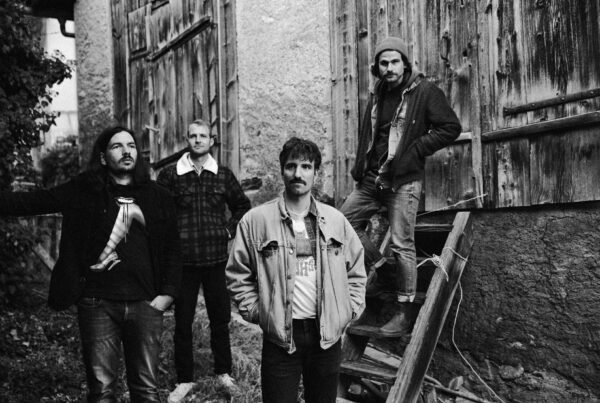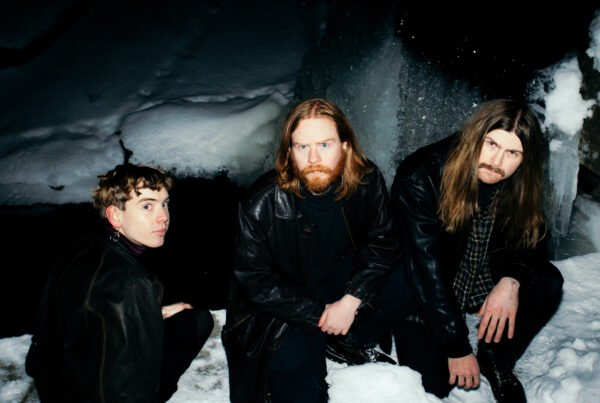Have you gotten tired of the dystopia yet?
If you’re a socially or politically conscious person who is either on the internet or pays attention to the news, or the kind of masochist that I am who is constantly plugged into both, then I am sure, whatever your political persuasion, the last 5-25 years have been stressful, if not the last few months in particular. Social and political change does act as a muse for a lot of art, though. Whatever joys or utter fucking hopelessness we find in the day-to-day grind, we can always be thankful that someone has turned their feelings into something creative to share with the rest of us downtrodden souls.
Today’s premiere is from an act we have covered before, futuredrugs. Half of the noise/industrial outfit, All Are To Return, futuredrugs makes experimental electronic compositions that are ideal for the slow apocalypse, described as, ‘Music with tomorrow’s edge – something to slice through the everyday. Strangeness of the new with beats that grip like a craving. Be the circuit-breaker. Stay with the trouble. Turn on, jack in.’ From their upcoming EP, Past Warnings Of Present Futures, here is the video premiere of “ice age coming”.
Brief ambient synths welcome the track with a grainy film reel video. Haunting, chanting vocals take hold over images of burning seas and oil spills, like a nightmare Koyaanisqatsi. The beat glitches in with images of polluting smokestacks and more stuttering synths. The chant increases in melody and intensity, building to an almost danceable, hypnotic crescendo that is over all too soon. Albeit a short song and video, the impact is heavy. Humanity has orchestrated its own demise, and the images have been embedded in our minds for decades at this point.
The description for Past Warnings Of Present Futures echoes these ideas:
‘The world is in flux. The planet you think to inhabit, no longer exists. But this is old news. We all need to learn to live with global systemic collapse. Feel the tides come in, ever higher. Attune to the uncertainty of existence. Head the warnings. Watch the burn.’
While hope is something to believe in, or that electoral politics and patience will see us through via microtransactions of incremental change, or that some great awakening will cause sudden cataclysmic revolution and drastically correct the course, futuredrugs takes the pragmatic approach of accepting the changes, for better or worse, as inevitable. The dystopia is here, tangible. We must stare it in the face, and we ought to have a soundtrack to the end times. The futuredrugs are saliently present. It doesn’t matter if you’re tired of the dystopia. You must live it.






